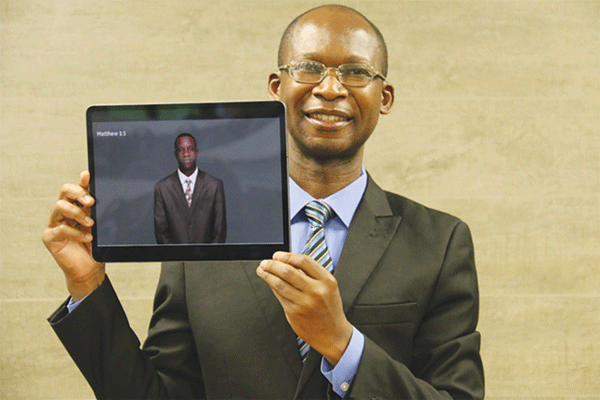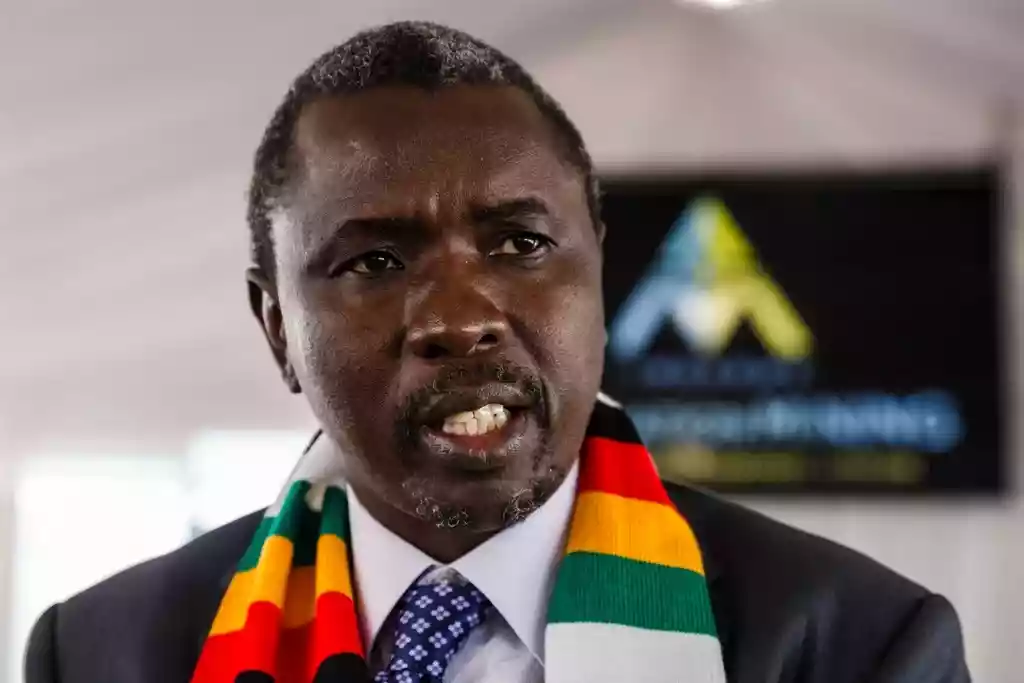
BY STAFF REPORTER
Jehovah’s Witnesses have released the first Bible book of Matthew in Zimbabwe sign language.
In a statement yesterday, Jehovah’s Witnesses said the sign language Bible book of Matthew was released in Zimbabwean sign language in Harare at the weekend and would cater for the deaf in the country, as well as deaf members of their congregation.
Statistics by the Zimbabwe National Association of the Deaf revealed that there were approximately 1,5 million deaf people in Zimbabwe.

“We have 243 deaf members in 21 congregations, 86 hearing who associate with the deaf to assist them countrywide, making a total of 323. There are more than 50 000 Jehovah’s Witnesses in Zimbabwe, including the deaf,” the statement read.
“They deserve a Bible in their own language so that God’s Word can be directed to the deaf without the use of an interpreter. Jehovah’s Witnesses are happy to make the Bible available in the language of the heart to the deaf community in Zimbabwe.”

- Chamisa under fire over US$120K donation
- Mavhunga puts DeMbare into Chibuku quarterfinals
- Pension funds bet on Cabora Bassa oilfields
- Councils defy govt fire tender directive
Keep Reading
A member of the Jehovah’s Witnesses branch committee, Taurai Mazarura, said: “In many Bibles, translators removed the name Jehovah from Matthew to Revelations. However, in the Zimbabwean sign language version of the book of Matthew, the name Jehovah is retained. This glorifies Jehovah, the author of the Bible.”

Jehovah’s Witnesses embarked on the Bible translation project for the last 27 books of the Bible, beginning with the book of Matthew.
“This work will take about two years. Our entire goal is to have the entire Bible translated into Zimbabwean sign language from Genesis through to Revelations,” the organisation’s spokesperson, John Hunguka said.
Hunguka who is also Jehovah’s Witnesses branch committee member said the entire project would take about 10 years to complete.

He said one of the challenges in translating the Bible Book of Mathew to sign language included the differences in the signs used by deaf people in Zimbabwe as different schools taught different dialects.
Follow us on Twitter @NewsDayZimbabwe











